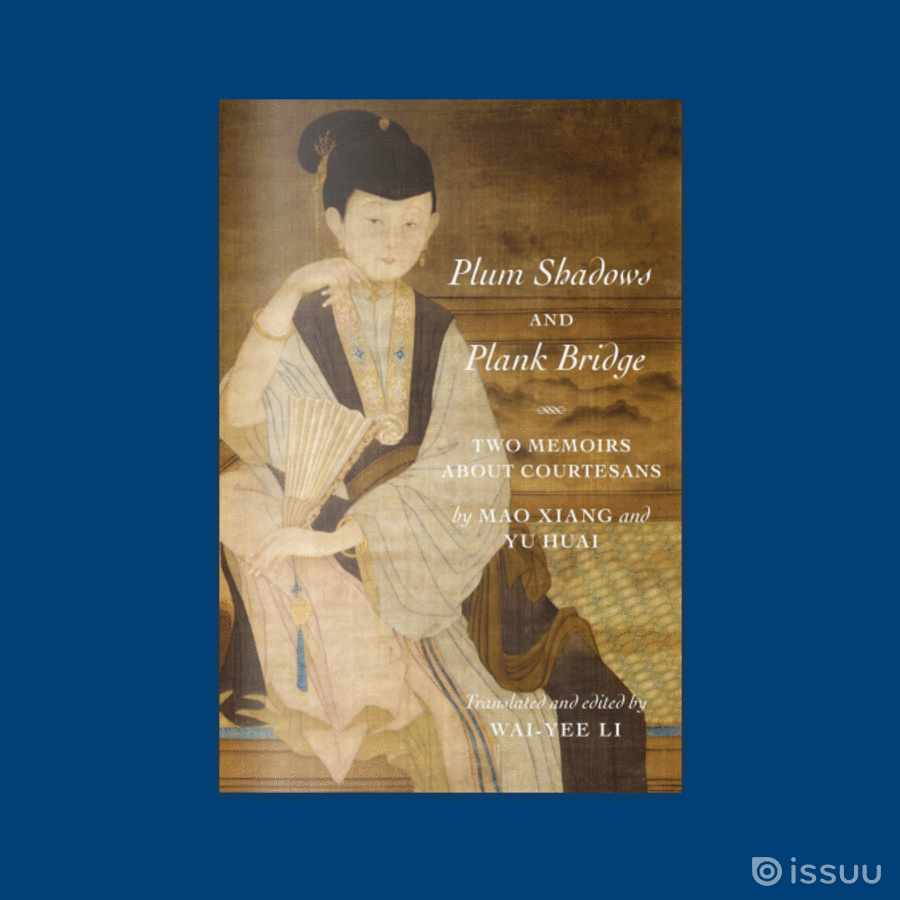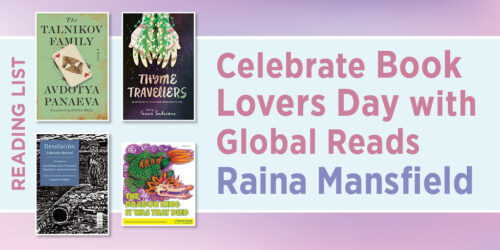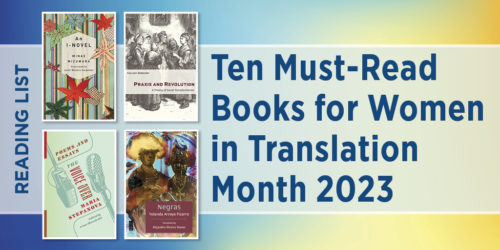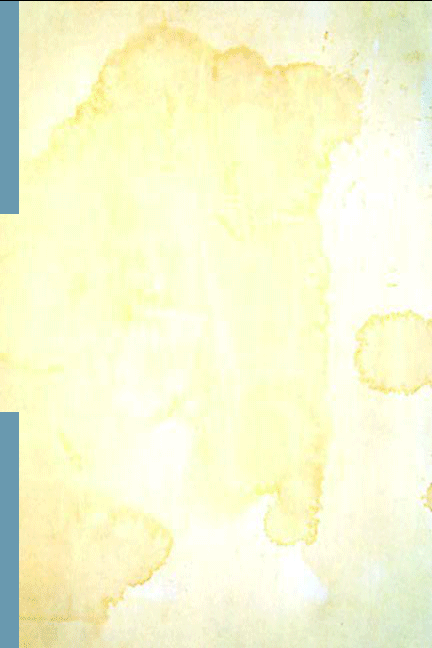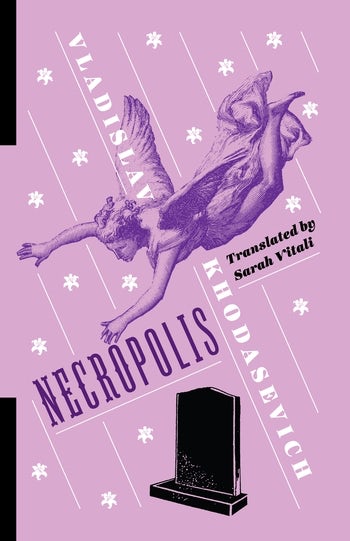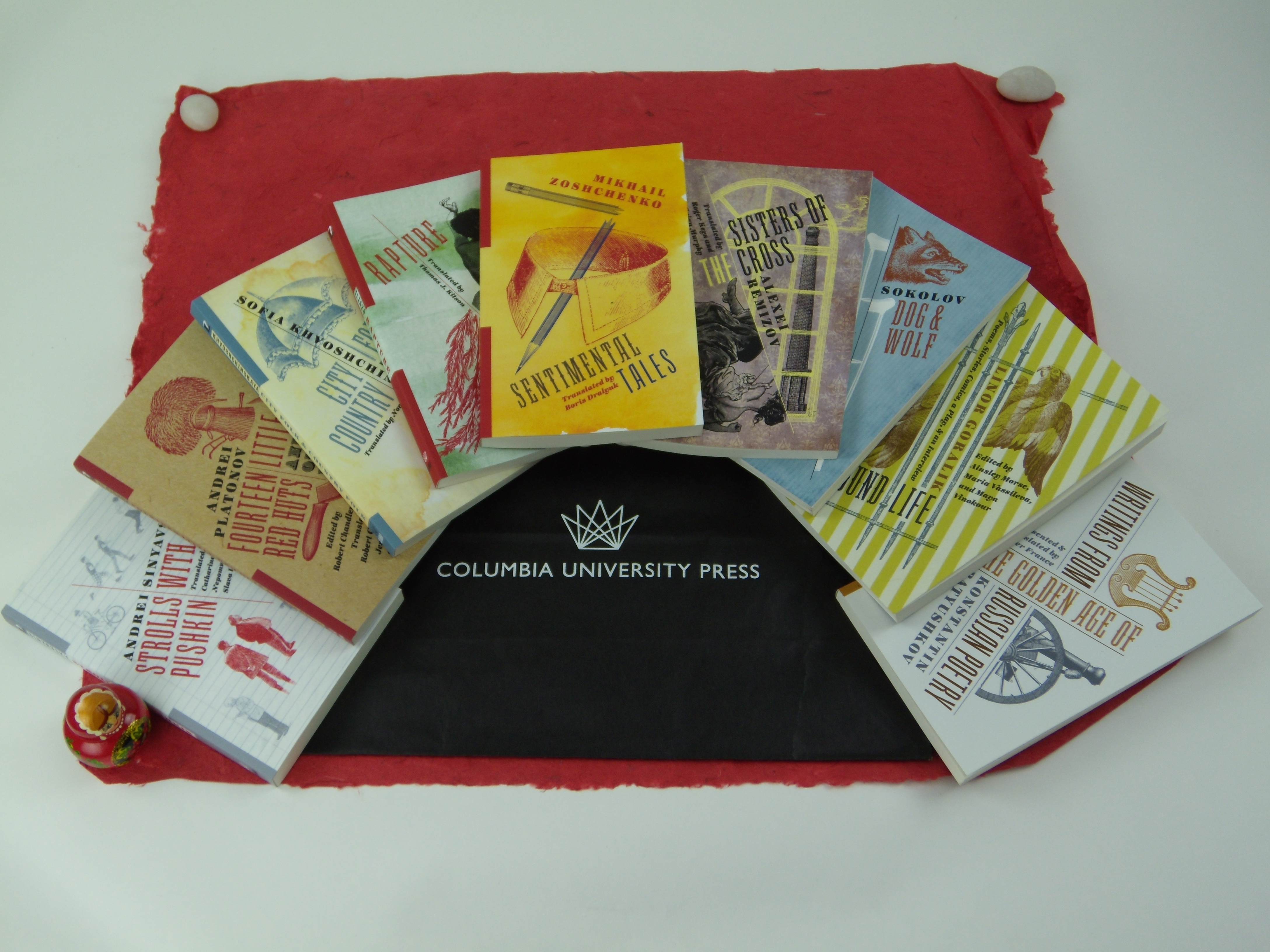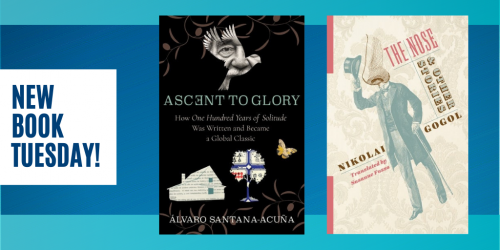Take a Literary Vacation

It’s the middle of winter break, and as the temperature drops, snuggling up next to a cozy fire with a good book is the perfect way to relax. So today, we invite you to take a vacation through place and time with these literary classics form Asia and Russia.
• • • • • •
1. Plum Shadows and Plank Bridge
By Mao Xiang and Yu Huai. Translated and edited by Wai-yee Li
Two famous men of letters reflect on their interactions with courtesans as literary refuge from their troubles. Together, they shed light on the sensibilities of late Ming intellectuals: their recollections of refined pleasures and ruminations on the vagaries of memory coexist with political engagement and a belief in bearing witness. With an introduction and extensive annotations, Plum Shadows and Plank Bridge is a valuable source for the literature of remembrance, the representation of women, and the social role of intellectuals during a tumultuous period in Chinese history.
2. A Couple of Soles
By Li Yu. Translated by Jing Shen and Robert E. Hegel
A Couple of Soles is a classic comedic romance, and the first major comedy from late imperial China to appear in English translation.Written at a time when China was beginning to recover from the cataclysmic Ming-Qing dynastic transition, the play displays Li’s biting wit as well as his reflections on the concerns of his age, including the dangers of administrative service and the role of theater in society
3. Fu Ping
By Wang Anyi. Translated by Howard Goldblatt
Nainai has lived in Shanghai for many years, and the time has come to find a wife for her adopted grandson. But when the bride she has chosen arrives from the countryside, it soon becomes clear that the orphaned girl has ideas of her own. Wang Anyi, one of contemporary China’s most acclaimed authors, delivers a keenly observed portrait of the lives of lower-class
4. Sacred Cesium Ground and Isa’s Deluge
By Kimura Yūsuke. Translated by Doug Slaymaker
In these two novellas, Kimura Yūsuke explores human and animal life in northern Japan after the natural and nuclear disasters of March 11, 2011. Kimura inscribes the “Triple Disaster” into a rich regional tradition of storytelling, incorporating far-flung voices and experiences to testify to life and the desire to represent it in the aftermath of calamity.
5. Fandango and Other Stories
By Alexander Grin. Translated by Bryan Karetnyk
In a bucolic idyll, a terrorist agonizes over the act of violence he is about to commit. On a remote island in the South Pacific, the investigation of a case of mass suicide reveals further mysteries. In a far-flung colony, a cynical trio sends an unwitting man into the wilderness in search of a chimera. Mixing romance and high adventure, intrigue and the fantastic, these magnificent tales by one of Russia’s most enduringly popular writers deftly probe the depths of human nature and desire.
6. Klotsvog
By Margarita Khemlin. Translated by Lisa C. Hayden. Foreword by Lara Vapnyar
Klotsvog is a novel about being Jewish in the Soviet Union and the historical trauma of World War II—and it’s a novel about the petty dramas and demons of one strikingly vain woman. Maya Abramovna Klotsvog has had quite a life, and she wants you to know all about it. Selfish, garrulous, and thoroughly entertaining, she tells us where she came from, who she didn’t get along with, and what became of all her husbands and lovers. Lisa Hayden’s masterful translation brings this gripping character study full of dark, sly humor and new perspectives on Jewish heritage and survival to an English-speaking audience.
7. A Double Life
By Karolina Pavlova. Translated by Barbara Heldt
An unsung classic of nineteenth-century Russian literature, Karolina Pavlova’s A Double Life alternates prose and poetry to offer a wry picture of Russian aristocratic society and vivid dreams of escaping its strictures. Pavlova combines rich narrative prose that details balls, tea parties, and horseback rides with poetic interludes that depict her protagonist’s inner world—and biting irony that pervades a seemingly romantic description of a young woman who has everything.
8. Nikolai Nikolaevich and Camouflage
By Yuz Aleshkovsky. Translated by Duffield White. Edited by Susanne Fusso
Among contemporary Russian writers, Yuz Aleshkovsky stands out for his vivid imagination, his mixing of realism and fantasy, and his virtuosic use of the rich tradition of Russian obscene language. These two novels, written in the 1970s, display Aleshkovsky’s linguistic gifts and keen observations of Soviet life. Though the narrators may not be the most reliable—one is a petty thief, the other an alcoholic—these comic tales nonetheless depict the stark reality of Cold War Russia in the late seventies.
Save 30% on this or any of our books this holiday season when you order from our website by using coupon code: Holiday2019 at checkout. Sale ends December 31 2019.
Categories:Book ExcerptFictionLiterary StudiesReading ListRussian Literature
Tags:A Couple of Solesa double lifeAlexander GrinBarbara HeldtBryan KaretnykDoug SlaymakerDuffield WhiteFandango and Other StoriesFu PingHoward GoldblattKarolina PavlovaKimura YūsukeklotsvogLara VapnyarLi YuLisa C. HaydenMao XiangMargarita KhemlinNikolai Nikolaevich and CamouflagePlum Shadows and Plank BridgeRobert E. HegelRussian LibrarySacred Cesium Ground and Isa's DelugeSusanne FussoTranslations from the Asian ClassicsWaetherhead Book on Asia SeriesWai-yee LiWang AnyiYu HuaiYuz Aleshkovsky

